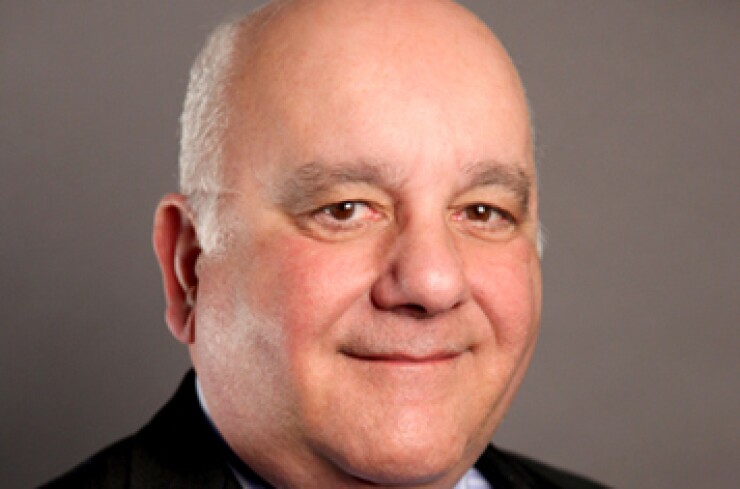
DALLAS - The current failure of House and Senate negotiators to find common ground on a short-term fix for the almost-insolvent Highway Trust Fund may not mean the ailing fund won't be patched, transportation experts said Wednesday.
Republicans and Democrats will have to eventually agree on a temporary patch because they won't want to return to their home districts for the August recess with insolvency ensured and highway projects coming to a halt, said Jack L. Schenendorf, of counsel at Covington and Burling LLP.
"Congress must do something by the end of July or the Transportation Department will start delaying highway payments," Schenendorf said. "They don't want to go home at recess without having fixed that problem."
There is strong bipartisan support for transportation funding, he said.
"The real question is when are Republicans and Democrats going to come together to deal with the issue," he said. "They've got three weeks left, and I would think they can find somewhere to compromise."
The House Ways and Means Committee will meet Thursday to begin work on an $11 billion temporary bailout of the HTF that was outlined Tuesday by Chairman Dave Camp, R-Mich. late Tuesday. Camp's plan would fund federal highway aid through May 31, 2015 with revenues from pension smoothing, census user fees, and Leaking Underground Storage Tank Trust Fund, while a competing $8 billion plan using tax changes that was proposed by Sen. Ron Wyden, D-Ore., would shorten the extension to Dec. 31, 2014.
Wyden, chairman of the Senate Finance Committee, postponed a vote on his measure last month so a bipartisan, bicameral solution could be negotiated with Camp. But the two lawmakers were not able to craft a compromise measure.
A short-term patch will be in place before the August recess begins, said transportation finance consultant Jack Basso, but not much before then.
"My experience is that Congress doesn't do anything until 48 hours before the building burns down," Basso said. "I think it is reasonable that this will get done and they'll strike a deal."
If the Dec. 31st deadline holds, Basso said, pressure will be on Congress to act quickly on a longer-term bill. But if the House is able to win a longer extension, "nobody has to do anything quickly," he said.
"It looks like the House intends to take its time on the longer term bill," he said.
House Speaker John Boehner, R-Ohio, and Camp want to push consideration of a long-term solution to the fund's structural imbalance into 2015, giving the job to a new Congress that could include a Republican-controlled Senate as well as House.
Boehner said Camp's proposal could go to a House vote as early as next week.
"I think chairman Camp and the members of the Ways and Means Committee have a really solid bill to help pay for the shortfall, if you will, in the Highway Trust Fund for the next eight or nine months," Boehner said Wednesday.
The length of any short-term patch will depend on how much of the expenditures can be offset through enhanced revenues or cuts in other programs, Schenendorf said.
"The general fund transfer is easy," he said. "The question is whether lawmakers can find the $8 billion of offsets needed to make it to the end of the year or $12 billion or so to take it into mid-2015."
The House and Senate will pass their own bills, Basso said, and smooth out the differences in conference committee.
Sen. Barbara Boxer, D-Calif., said the House committee's temporary fix is an attempt to derail passage of a long-term transportation bill this year.
"This ill-conceived proposal would prolong uncertainty for business, local governments, and the states and would create another financial crisis right before the next construction season," she said.
Boxer is chairman of the Senate Environment and Public Works Committee, which has approved a six-year highway bill that keeps federal transportation spending at the 2014 level plus inflation through fiscal 2020.
"Passing a long-term transportation bill this year would provide a real boost for our economic recovery," Boxer said.
Sen. Tom Carper, D-Del., called Camp's plan "a flawed strategy" and held out for a long-term funding solution in the fall.
"The time to act is in 2014 and any proposal that fails to do that should be a nonstarter," said Carper, a member of the finance committee and chairman of the environmental committee's transportation subcommittee. Congress has been contemplating the transportation funding problem for more than five years and is aware of the options available, he said.
"Giving Congress another year will not reveal any new solutions," Carper said. "It's only stalling and dodging the hard decisions that voters sent us to Congress to make.
Camp's plan also drew fire from Sen. Bob Corker, R-Tenn., who has proposed a 12 cent per gallon increase in the federal gasoline tax.
"It's shameful for a nation of our greatness to be handling infrastructure funding the way that we are," Corker said. "This disgraceful practice of borrowing money to cover a few months of spending and paying for it over a decade is nothing more than generational theft."





